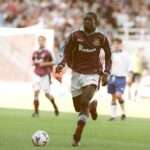Several key components are required to be a good basketball coach. Anyone who’s played basketball has likely had multiple coaches, running the gamut from ‘eager, inexperienced new guy’ to ‘30-year seasoned disciplinarian’ and everything in between.
Most players can quickly pick up on whether their coach is good; this doesn’t necessarily mean players like their coach and want to be friends, but it does mean they recognize that the coach knows what he or she is talking about. This guide features a list of some of the more prevalent characteristics of a successful coach.
Visionary
Great coaches are generally great leaders. And one thing that all leaders have in common is an uncanny ability to create a vision of where they want to take their team. Developing a clear picture of your goals and expectations for your team will motivate your players to work hard and reach their potential.
Clear Communication Habits
You can be provocative and get out there and act kind of like they do, if you want to, and get in people’s faces and do that, but that’s not the way I like to coach a team. That’s not what I consider positive coaching. And that’s what I like to think is the right way to do things.
11-Time NBA Champion Head Coach, Phil Jackson
Anyone who has ever had to take instructions knows the frustration of being expected to carry out a task, but having no idea how it’s supposed to be done. This is especially true of athletes. A coach who can effectively communicate — not only to the players, but to the other coaches as well — is crucial to ensuring that everyone involved understands what their respective responsibilities entail.
Two crucial areas in which coaches should be able to clearly communicate are:
- Practice and training structure: If a coach says practice starts at 4:00 pm, does that mean players should be in the locker room changing at that time, or out on the court stretching by that time? Does practice start the same way every day? Is there a schedule to follow? A good coach should have a detailed and structured idea of how practice will be run.
- Expectations for players’ behavior: From locker room protocol to what happens before practices and during games; the less a coach leaves to question, the better. When players understand what’s expected of them, they are more accountable for their actions. Included in this should be specific consequences that occur when a player’s behavior does not meet the set expectations.
Good communication doesn’t just mean using clear, concise language. Ensuring that players are able to communicate their understanding of something is just as important; this includes everything from making sure players know that they’ll have to run laps if they’re late to practice, to double-checking that players understand their responsibilities on the court.
Tough but Fair
Basketball is a tough game, and basketball players are (to varying degrees) tough people. Generally, tough people respect people that are as tough, if not tougher, than themselves. This is especially true among a basketball team; if players feel like their coach is a pushover, and doesn’t properly command control of the team, then they likely won’t respect him.
Among the qualities that ‘tough’ should entail:
- Pushing players to excel in practice, even if they’re tired.
- Holding all players to the same standards.
- Expecting maximum effort from players at all times.
- Strictly adhering to the rules and expectations set forth at the beginning of the season.
When players fully accept that it’s the coach’s way or the highway, it has a very significant and positive impact on their ability to function together as a team.
The flipside, however, is to ensure that players understand that it’s also their team. When mistakes are made, a good coach will give players a chance to explain themselves before automatically punishing them.
This is not a trait that communicates weakness; instead, it demonstrates that the coach doesn’t rush to judgment. This can be seen as a sign of respect, and respect given by a coach is usually returned several times over by a player.
Involved in Players’ Personal Lives
The title of ‘coach’ also includes, depending on the level of basketball, responsibilities normally associated with parents, teachers, social workers, and even therapists. It’s important for a coach to make his players understand that he is primarily concerned with how the team functions, but at the same time a good coach understands that his players are also people. A great coach will understand that his players are people before they’re basketball players.
The high school player who’s struggling in English class may be surprised when his coach asks about his grades, but he would likely be grateful if the coach were to set him up with a tutor or other assistance outside of class. Such actions go a long way to endearing players to their coach, and as a result they want to perform better. There’s nothing that says the coach has to help, which is part of why players usually respond so positively to it.
Good Coaches are Good People
Aside from an astute understanding of the game of basketball, being a good coach really boils down to being a good person. Unfortunately this rule of thumb is not an absolute. But by and large, being a decent person with a passion for the game goes a long way to becoming a good basketball coach.



